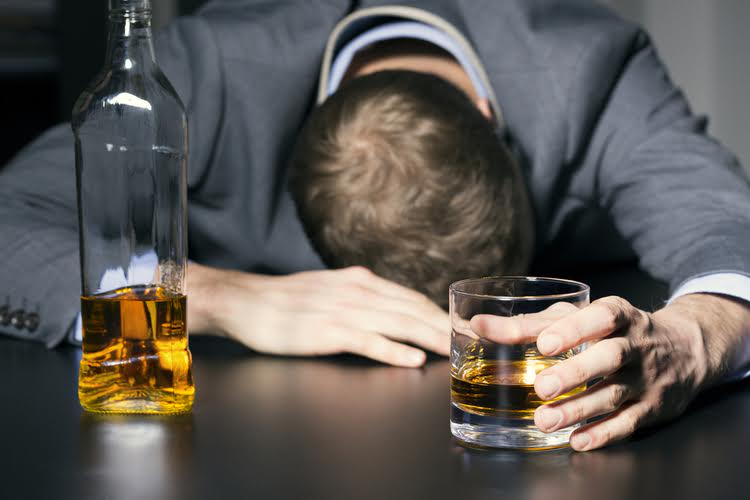Coupled with practical strategies for diversion and the support of a compassionate community, the journey through recovery can become a pathway to profound personal growth and healing. In the United States, three drugs are approved by the Food and Drug Administration (FDA) for the general treatment of alcohol use disorder (AUD), including cravings (2). A physician or other qualified healthcare provider can assess whether one of the following medications can help you. Cravings often arise from a combination of hormonal, psychological, and emotional factors.
- Participating in a mutual-help group like Alcoholics Anonymous (A.A.) or another 12-step program can offer even more support.
- Both professional support groups and personal networks play intrinsic roles in recovery.
- Such cognitive-behavioral therapies include operant conditioning, contingency management or coping skills training (Witkiewitz et al., 2019).
- Some of these tips may be more helpful early in your efforts to change your drinking habits, whether your goal is to cut back or to stop drinking entirely.
- Exercising, meditating, or simply grabbing a tall glass of water can combat the craving.
- Dr. Bowen’s MP3 files (link above) offer an excellent “urge surfing” meditation.
Using Therapeutic Techniques to Reduce Cravings

Moreover, it has been shown that high percentages of drug addicted patients allege intrapersonal https://kochmeister.ru/sozdanie-dachnogo-landshafta-svoimi-rukami-vazhnye/ determinants related to frustration as the main cause of relapse (Ramirez-Castillo et al., 2019). From a therapeutic view, the capability of psychotherapeutic treatments (alone) has been demonstrated to restoring the biological normality of brain structure and function (Barsaglini et al., 2014). This is of especial interest when only limited effects have been documented by pharmacological treatments, for example in the drug addiction (Dakwar and Nunes, 2016).
FDA-Approved Alcohol Craving Medications
- Turner notes the importance of bringing along a trusted support person when attending events that involve alcohol.
- When we’re appropriately nourished, we’re less likely to succumb to cravings.
- Omega-3-rich fish like salmon and mackerel may also help improve focus and overall brain health.
To overcome urges and not be fearful of them, you’ll need more advanced methods. You’ll need to experience the urge, but not act on it, until the urge lessens and goes away. Think about these ebbs and flows as though they were waves in the ocean. The urge https://docload.ru/standart/Pages_gost/674.htm loses its grip on you when you realize it won’t last forever.

Get online support.
- Scheduled meal times can also help reduce the likelihood of impulsive eating or drinking.
- Nuts and seeds are packed with healthy fats, proteins, and fibers, making them a perfect snack to curb alcohol cravings.
- If done correctly, therapy for alcohol addiction can reduce the number of triggers and urges a person has when trying to quit drinking.
- “Maybe being enrolled in a weight management program encourages healthy behavior change,” she says.
- Elisabet Jerlhag at the University of Gothenburg notes that people with obesity tend to have less severe side effects while taking semaglutide than people who don’t have obesity.
What is usually conceptualized as a trigger (cause attributed to an external element) would be a simplification because it denies the role of the inner experience. Because if we avoid the external trigger without treating the previous subjective cause, then the probability of relapse is high. The treatment of the subjective emotional state will help to provide a new meaning to that external stimulus, an action that we call to “re-meaning” the trigger. By incorporating these non-food rewards into your routine, you can develop healthier coping mechanisms and reduce your reliance on food for comfort. There are randomized controlled trials underway – which are considered the gold standard in medical research. While the research is ongoing, Leggio https://leninism.su/books/4355-mezhdunarodnaya-deyatelnost-v-i-lenina-zashchita-zavoevanij-sotsialisticheskoj-revolyutsii-1919-1920-gg.html?start=6 points to medications such as naltrexone, that the FDA has already approved to treat alcohol use disorder.
- “It’s hard to explain why. Alcohol just doesn’t sound as appetizing or appealing. And now my tolerance is lower, too.
- Research has shown that continuing care is an important component of effective treatment for substance use disorders, especially for those individuals with severe cases.
- If you turn to alcohol to manage emotional distress, the added overwhelm can prompt the urge to drink, making success seem even more out of reach.
- Instead, a habit loop of cues, behaviors, and rewards may be causing the cravings.
- People taking weight-loss drugs Ozempic and Wegovy report a dampening of the urge to drink.
- ” I think this is an extension of this reward based biology that we see that these drugs are affecting,” he says.
External triggers are things in your environment that make you want to drink alcohol. These triggers can be people, places, or things that make you crave alcohol. Similarly to addiction, stress disorders are also related to a trigger stimulus evoking a strong subjective experience. A neurobiological overlap between these two conditions would therefore be expected. Any attempt to study this complexity through one single level is insufficient.

